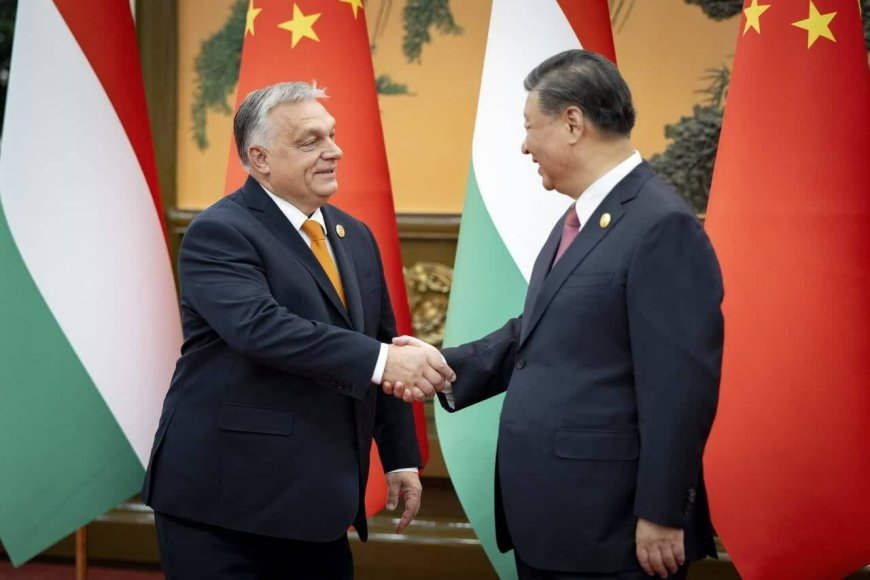China's Strategic Foray into Europe: Hungary as a Gateway to Sino-European Cooperation?

In recent days, the Chinese President's European tour has garnered significant attention from analysts, with some deeming it one of the most consequential diplomatic initiatives of Mr. Xi's tenure. Amidst the high-profile visits to France and other European capitals, it is Hungary that has emerged as a nation warranting particular scrutiny. China's longstanding ties with Hungary, spanning over seven decades, have assumed renewed importance in the current geopolitical landscape.
Hungarian Prime Minister Viktor Orbán has consistently demonstrated unwavering support for China and Russia, actively obstructing EU assistance to Ukraine. Unlike his European counterparts, who maintain a cautious stance towards China, Orbán has enthusiastically embraced economic engagement with the world's second-largest economy.
During the recent summit between the two leaders, both Xi Jinping and Orbán emphasized their shared desire to elevate their relationship to a comprehensive strategic partnership. This convergence of perspectives extends to their worldview, providing a solid foundation for deepening bilateral ties. Notably, Orbán has expressed appreciation for China's purported efforts towards peace in Ukraine.
While Western observers allege that China is providing substantial intelligence and logistical support to Russia, Beijing has vehemently denied these accusations, reiterating its commitment to ending the conflict. Hungary, the sole EU member state unequivocally advocating for an immediate ceasefire in Ukraine, shares this common outlook with China.
This shared perspective on Ukraine has fostered a closer alignment between the two nations. Notably, Germany's recent decision to downgrade China as its primary trading partner has heightened Hungary's significance for Beijing. Moreover, Hungary's strained relationship with the European Union has further incentivized both countries to bolster their economic and political ties.
The joint approach between China and Hungary, embodied in an ambitious 18-point economic agenda, has the potential to facilitate the entry of Chinese goods into the European market, circumventing potential EU restrictions. This agenda envisions the establishment of Chinese-backed factories and industries within Hungary. Furthermore, the two nations are contemplating significant collaboration in the nuclear energy sector.
Orbán's unwavering support for China has drawn the ire of European leaders. He has consistently opposed EU condemnation of China's human rights record, shielding Beijing from international scrutiny.
President Xi's recognition of Orbán's leadership in fostering closer China-Hungary relations is evident in his recent remarks. Xi has designated Hungary as the "golden destination" of his European tour, signaling China's intent to prioritize Hungary as its primary investment target in Eastern and Central Europe. Beijing aims to deepen economic cooperation and prevent any potential decoupling.
Moreover, China recognizes the opportunity to exploit the growing rift between Europe and the United States. By cultivating closer ties with Hungary and other EU member states, China can potentially weaken the transatlantic alliance and secure its long-term interests. This strategy would allow China to minimize international pressures and costs while maintaining its status as a major player in the global arena.
Conclusion
In conclusion, China's diplomatic outreach to Europe has highlighted the growing importance of Hungary as a strategic partner. Hungary's support for China's foreign policy positions, its eagerness for economic cooperation, and its strained relationship with the EU have created a favorable environment for China to expand its influence and secure its economic interests in the heart of Europe. China's engagement with European allies has taught it the importance of tangible actions beyond mere promises. The withdrawal of Italy from the Belt and Road Initiative serves as a cautionary tale. Hungary, therefore, presents an opportunity for China to solidify its foothold in Europe through substantial investments and strategic partnerships. Beijing aims to leverage this opportunity to weaken the transatlantic alliance and minimize international pressures. It remains to be seen how China will utilize this strategic opening and whether Hungary will indeed become its backyard in Europe.













































